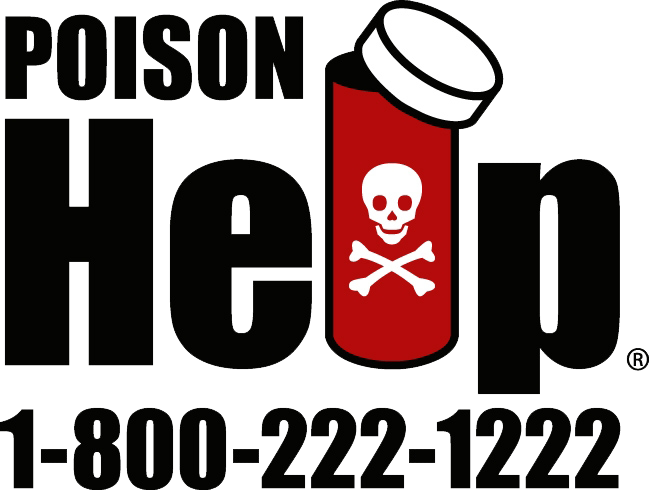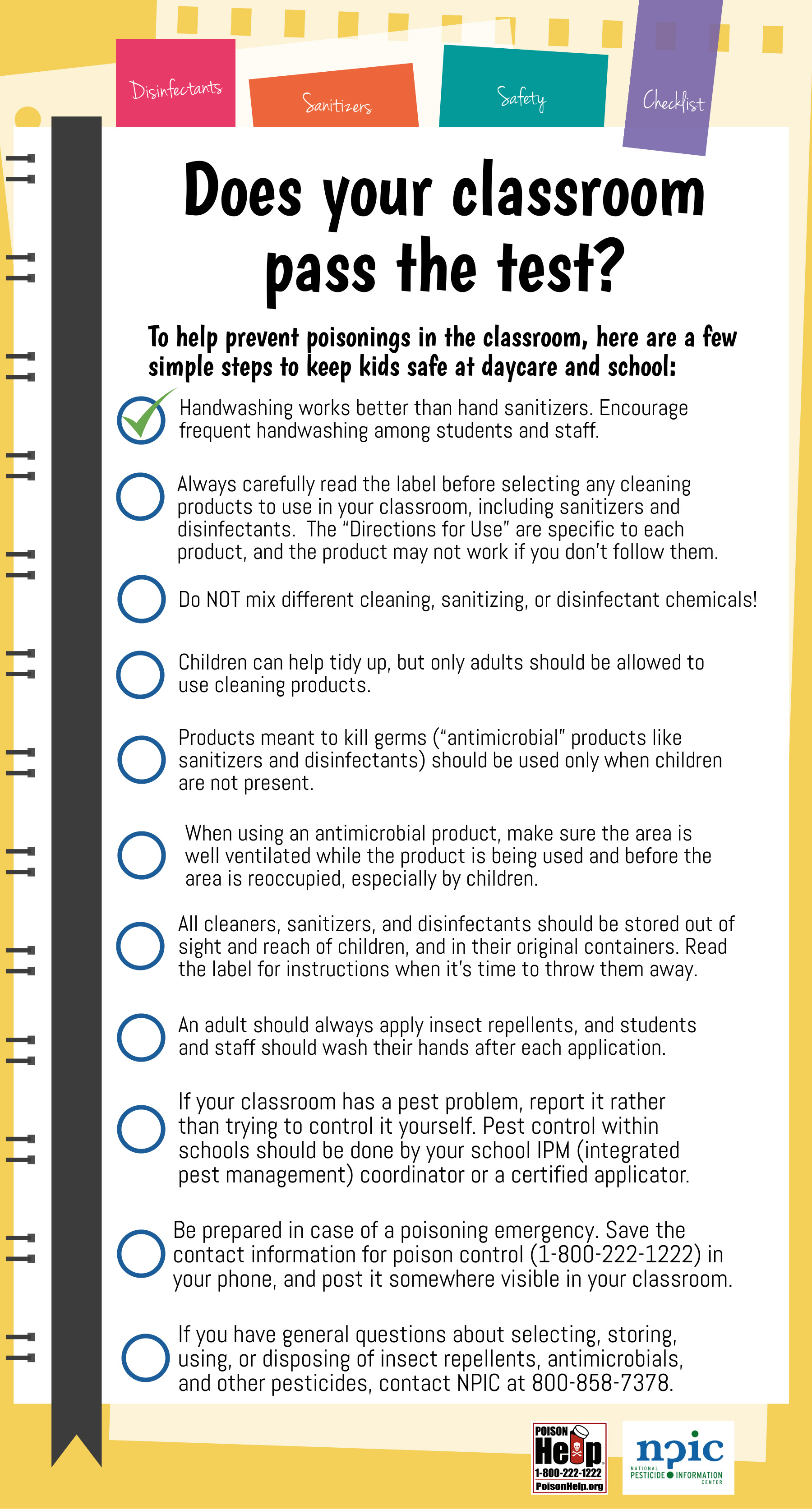Daycare and School Poison Safety
1.800.858.7378npic@oregonstate.edu
We're open from 8:00AM to 12:00PM Pacific Time, Mon-Fri
A to Z

This document was created through a collaboration between NPIC and the American Association of Poison Control Centers.
While the end of summer is an exciting time for kids, parents, and educators, it is also a time for an increased risk of illness or injury as students head back to school. According to the Centers for Disease Control (CDC), more than half of students (ages 5-17) miss 1-5 school days each year due to illness or injury. Studies show that students with more absences have lower scores on national standardized tests. In short, attendance is a key indicator of student academic achievement.
To reduce illness, schools may use cleaning products called "antimicrobials" to kill germs like bacteria and viruses. Antimicrobials play an important role in protecting public health by helping to keep people well enough to work, lowering school absences, and reducing indoor allergens. However, antimicrobials also contain chemicals that may cause serious health problems if used in the wrong way or in the wrong amounts. There are two types of commonly used antimicrobials:
- Sanitizers are the weakest antimicrobials available to the public. Some are used to reduce bacteria on surfaces that touch food, while others should only be used for non-food contact surfaces. Always read the label to find out how to safely and properly use any sanitizer.
- Disinfectants kill or prevent the growth of bacteria and fungi. Some also target specific viruses. They are the most commonly used antimicrobial in medical settings and are also used in residential settings to disinfect household surfaces. Disinfectants should never be used on surfaces that come into contact with food.
Children are especially sensitive to cleaning chemicals like antimicrobials. Just because using a particular cleaning substance doesn't affect you doesn't mean it won't cause harm to your students. Unsafe behaviors coupled with natural curiosity increase the chances of a child coming into contact with hazardous chemicals. Exposure can happen in multiple ways, including:
- Swallowing by licking surfaces or placing hands or objects in their mouth,
- Breathing in toxic vapors or fumes,
- Chemical residues being absorbed through the skin, and/or
- Rubbing eyes after touching treated surfaces.
 |
 |
 |
 |
The American Association of Poison Control Centers (AAPCC) and the National Pesticide Information Center (NPIC) offer a few simple steps to help prevent poisonings at daycare and school:
- Store cleaning products and chemicals up, away, and out of sight of children, and in their original containers. Keep the following substances in cabinets secured with child-resistant locks:
- Common cleaners and disinfectants
- Disinfecting wipes
- Alcohol-based hand sanitizers
- Bug sprays and insect repellents
It is also important to remember that some cleaning products, like bleach and ammonia, can create highly toxic fumes when combined. NEVER mix cleaning chemicals!
- Read and follow label instructions. Make a habit of reviewing the label on any chemical or product before each use. Follow usage directions, and the directions provided for safe storage and disposal. For antimicrobials to be effective, the surface must stay wet for the amount of time listed on the label. Call NPIC at (800) 858-7378 if you have any questions about the product and the directions.
- Apply insect repellents properly. Insect repellents should always be applied by an adult and according to the label instructions. Because children frequently put their hands in their eyes and mouths, the EPA recommends that all repellent products have the following precautionary statements related to children on their labels:
- Do not allow children to handle this product, and do not apply to children's hands. When using on children, apply to your own hands and then put it on the child.
- After returning indoors, wash the child's treated skin and clothes with soap and water or bathe.
For general questions about selecting, storing, using, or disposing of insect repellents, antimicrobials, and other pesticides, call NPIC at (800) 858-7378.
- Be prepared for an emergency. Contact poison control immediately at (800) 222-1222 if you suspect that a student or staff has been accidentally exposed to a dangerous substance, or is showing symptoms. Seeking the medical expertise of a poison center specialist could be lifesaving.

The best way for teachers and caregivers to be prepared in the event of any poisoning emergency is to save the contact information for poison control into their smartphones simply by texting "POISON" to 797979. Also, make sure to display the contact information for poison control throughout your daycare or school, in case of emergency.
If you have questions about this, or any pesticide-related topic, please call NPIC at 800-858-7378 (8:00am - 12:00pm PST), or email us at npic@ace.orst.edu.

